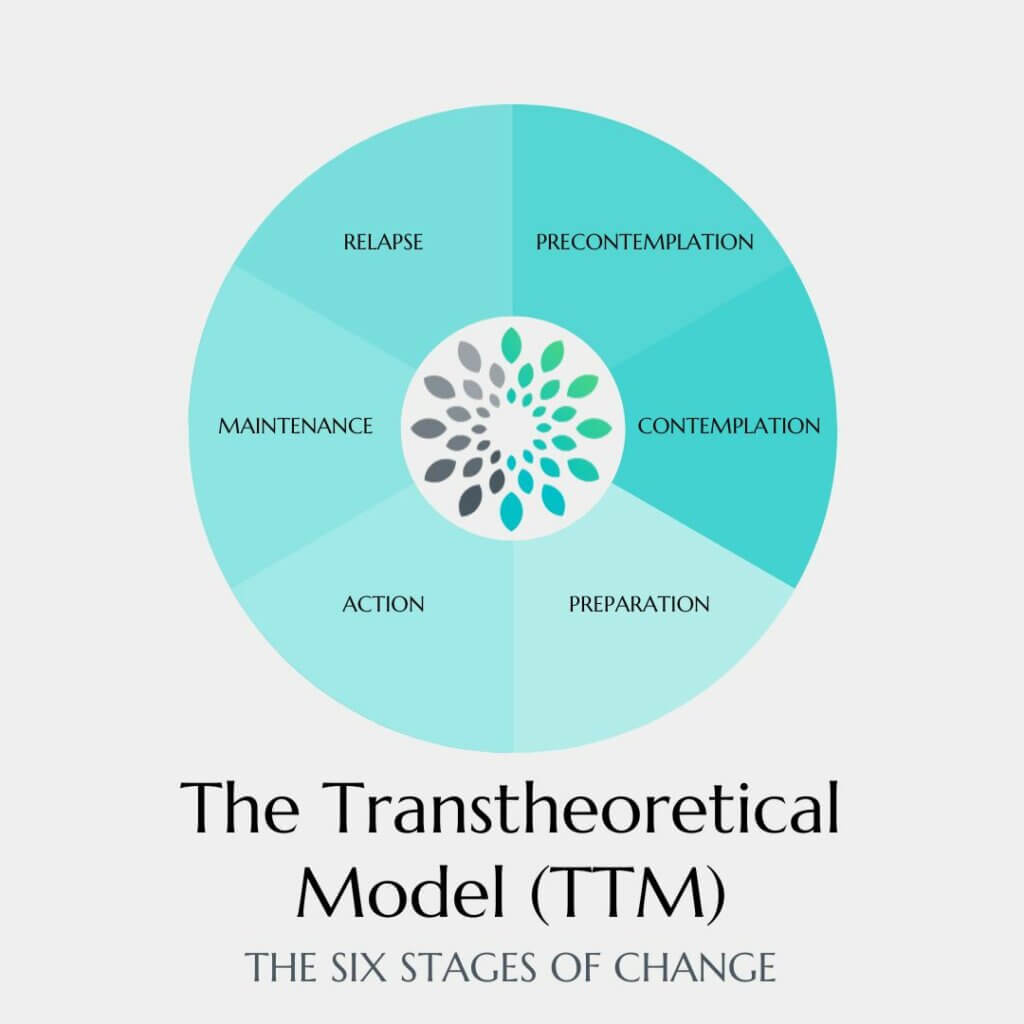Change is an inevitable part of life, and sometimes, we need to make significant adjustments in our habits, relationships, or lifestyle to improve our well-being. The six-stage model of change* is a useful roadmap for making such changes, as it helps us recognize and understand the different phases we experience when attempting to create lasting transformation in our lives.
In this blog post, we’ll explore each stage by drawing from my own personal experience. We’ll explore the stages of Pre-contemplation, Contemplation, Preparation, Action, Maintenance, and Relapse, and how knowing where you are currently will greatly help you.
1. Pre-contemplation
The pre-contemplation stage is the initial phase, characterized by a lack of awareness about the need for change. In my case, I spent two years in this stage, not recognizing that my relationship with alcohol was slowly becoming problematic. This stage can be challenging, as the individual may be in denial or unaware of the negative consequences of their behavior.
2. Contemplation
As I started becoming more conscious of my unhealthy relationship with alcohol, I entered the contemplation stage, which lasted for about six months. This stage is marked by an increasing awareness of the need for change and a consideration of the pros and cons of making that change. During this time, I began to weigh the benefits of quitting alcohol against the drawbacks of continuing my unhealthy habits.
3. Preparation
After a pivotal incident in July 2016, I realized that enough was enough, and I needed to take control of my life. I entered the preparation stage, which involves creating a plan and setting a timeline for change. For 45 days, I mentally and emotionally prepared myself for a life without alcohol, gathering resources and support to help me in my journey.
4. Action
In this stage, I made the decision to quit drinking once and for all. The action phase is when the actual change occurs, as the individual takes steps to modify their behavior or environment. This stage requires commitment, persistence, and ongoing support to overcome obstacles and stay on track.
5. Maintenance
Since taking that decisive action, I have been in the maintenance stage, working to sustain my newfound healthier lifestyle. This stage is crucial for long-term success, as it involves continued effort to prevent relapse and ensure the change becomes a permanent part of one’s life. In my case, I’ve developed strong mindset strategies and surround myself with people that strengthen me. After several years, this became automatic for me as I’ve created a new identity for myself – and you can too!
6. Relapse
Relapse is an often overlooked stage in the process as some people don’t reach this stage. However, it’s essential to recognize that setbacks may occur, and rather than viewing them as failures, use them as learning opportunities to strengthen your commitment to change. While I have not experienced a relapse, I am aware that it can happen, and I remain vigilant in my efforts to maintain my healthier lifestyle.
Conclusion
The six stages of change can be a powerful tool for anyone looking to make a lasting improvement in their life. By understanding and navigating these stages, we can better prepare ourselves for the challenges that come with change and ultimately create a healthier, more fulfilling life. Whether you’re trying to quit drinking, like I did, or make another significant change, embrace the journey and be proud of the progress you make along the way.
If you’re ready to take action to make a significant change in your life (as a gray area drinker, or looking to improve a habit), schedule a zero pressure call with Kari today to determine if you’re a good fit for coaching or not. If you desire change, that’s the first action step. If I can do it, you can too.

*The Six Stages of Change model, also known as the Transtheoretical Model (TTM), was developed by two American psychologists, James O. Prochaska and Carlo C. DiClemente, in the late 1970s and early 1980s. Their research focused on understanding the process of change in individuals who were trying to quit smoking. They found that people went through a series of stages when attempting to change their behavior, which led to the development of the TTM.
The Transtheoretical Model has since been applied to a wide range of behaviors and areas, including substance abuse, exercise, weight management, and mental health. The model has proven to be valuable in understanding the complexities of behavior change and providing guidance for interventions and support during each stage of the change process.
Watch the YouTube Video by clicking on the photo below 👇👇👇



